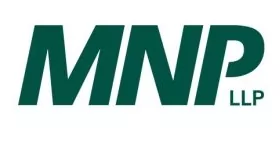The 'new and improved' B.C. Provincial Sales Tax (PST) has been in effect for almost a year now. With its implementation, systems and procedure changes had to be made to (re)implement the tax. One year in, you may still have a few issues to work out or have some nagging uncertainties in the back of your mind.
Why is now a good time to take a step back and evaluate your PST risks? When the province brought the tax back, the idea was to give everyone the first year to re-implement the tax and seek guidance from the province where needed. Now that this first year is complete, PST audits will commence.
Here are some B.C. PST risk areas you may wish to consider.
Risks on sales
It's generally not difficult to make sure you are charging PST on retail sales in B.C. If your cash register is programmed to charge 7% PST on a bar of soap, the machine will do the work and the tax will be collected.
But what about when something is taxable to the general public, yet an exemption applies in specific circumstances? For example, if you sell a computer to be delivered on a First Nation reserve, the taxable supply may be exempt. All of the appropriate supporting documentation to exempt the PST must be kept on file for inspection. In one example, we saw a PST auditor ask for a particular piece of documentation to substantiate an exempt sale from more than a year ago. When that one piece of paper was too faded to be legible anymore, the auditor proposed to multiply the effect of that one transaction to be extrapolated to the entire audit period.
How about if you sell a computer to a business in B.C.? If the business is going to use the computer as part of their operations, you will have to charge PST. But if the business is going to resell that computer to a customer, you need to retain the business's PST number or a purchase exemption certificate in order to exempt the tax. If the PST number that business gave you is not valid, you may be liable for the PST you did not collect.
If you provide a 'related service' to tangible personal property, be aware that the rules may have a broader reach than under the old Social Service Tax. It is important to have a good system in place to determine the PST status of a sale in order to minimize your audit risk.
Risks on purchases
Compared to collecting PST on sales, mitigating the PST on purchases is a struggle for many businesses. With so many variables on the purchase side, it is not always easy to be certain how the PST should be treated.
When a purchase invoice arrives at your accounts payable department, that invoice cannot be relied on to determine the PST status of your purchase. If PST was charged, was it supposed to be charged? If PST was not charged, was it supposed to be exempt? Can the purchase order (PO) be relied on for the PST status? Not necessarily. Even if the purchase was made on an exempt basis correctly at the time, PST liability could still arise later on that purchase.
Let's take a construction supply business as an example. You raise a PO to buy lumber as inventory for resale. On the PO, you provide your PST number to the lumberyard to make the purchase free of PST. When you mark up and sell the lumber to a consumer, you would charge your customer PST on the sale. This is where the straightforward part ends.
Assume for a minute that you also provide construction services and you quote someone $20,000 to build walls in their house, including all the materials. You take some lumber out of your inventory (on which PST has not been paid) to build the walls. Now you have to self-assess PST on the pieces of lumber you used to build the walls, because you are considered to be the end user of the material. When you are busy running your business and fulfilling contracts, you also need to be a meticulous record keeper in order to properly self-assess PST – something that's easier said than done.
It's not just businesses in B.C. that need to be aware of their B.C. PST risks. For example, if your business is located in Alberta and you've just won a bid for a construction project in B.C., you will need to consider the PST temporary import rules for using your equipment or vehicle in B.C. Or if your business has multiple locations across Canada, you may need to self-assess PST because the B.C. employees use software that the Toronto headquarters purchased licenses for from a U.S. vendor.
Conclusion
Waiting for an auditor to advise you what the PST risks are will generally not work in your favour. To take a proactive approach, start with a high-level assessment of the business's risk areas and then hone in on specific areas of concern.
The content of this article is intended to provide a general guide to the subject matter. Specialist advice should be sought about your specific circumstances.

